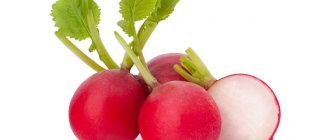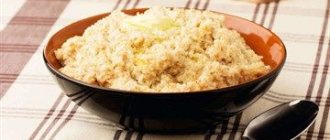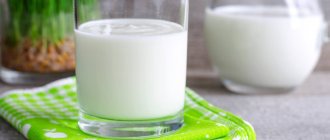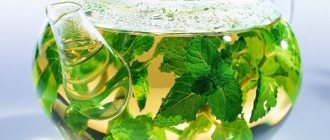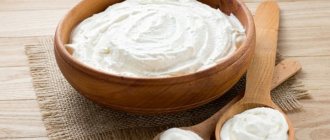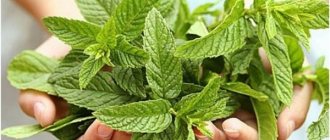Fluid during lactation is an important component of the diet to avoid dehydration and to improve stimulation of milk production. Let's consider whether it is possible to drink green tea while breastfeeding, when and how to drink the drink.
Green tea during lactation is a permitted and useful drink in a certain dosage to maintain stable milk production.
Is green tea allowed for breastfeeding?
Green tea is a drink of youth. Known for its therapeutic properties for over 3000 years. Tannins in the product occupy three parts of the composition, and there is twice as much tannin as in black tea. That is why there is an opinion that the drink stimulates the nervous system, provokes tachycardia, causing harm to the newborn.
Can a nursing mother drink green tea? Lactation specialists are unanimous in the following: it is possible, but only in moderation, natural and weakly brewed.
Rich tea of any kind will not be beneficial for breastfeeding, because the caffeine content of a strong drink is comparable to coffee, and therefore it is prohibited to drink it while breastfeeding.
Myths about green tea
Interesting product notes are quite common. Sometimes they are doubtful or contradict each other.
Common myths:
- Has a calming and invigorating effect. Both statements are true and depend on the brewing time. Infuse for 2 minutes. tea gives a stimulating effect, 5 min. - calming. If you brew for longer than 6 minutes, the drink will lose most of the essential oils and a lot of beneficial properties.
- Green tea should be drunk after meals. It is not possible, because it will not bring any benefit, it will dilute the gastric juice. It is advisable to drink tea between meals or after a break of 30-40 minutes.
- General availability of quality products. The cheap goods presented on store shelves have nothing to do with real tea. High competition and a large number of counterfeits lead to the fact that importing a quality product becomes unprofitable, so it is difficult to buy.
- Brewed tea can be stored for a day. When breastfeeding, it is especially important to ensure that you only drink freshly brewed drinks. Beneficial properties are retained for the first 15 minutes; long-term storage causes an increase in the concentration of harmful substances.
- Green and black tea are different plants. No, both varieties are collected from the same bush. The difference lies in the absence or presence of fermentation.
- Tea diluted with milk improves lactation. This is a myth; the drink will not affect the amount of milk produced by a woman during lactation. A warm drink will only cause it to rush to the mammary gland.
The benefits of green tea during lactation
Any warm liquid stimulates milk production, and therefore pediatricians advise drinking hot tea, herbal infusions or compotes 30 minutes before feeding. When drinking green tea in the morning and evening, lactation continues, the body is in good shape, and the immune system is strengthened.
To get the benefits of the drink, you need to choose not a packaged product for brewing, but a leaf one. When drinking the drink in the first half of the day, the condition of the hair improves, the number of facial wrinkles decreases, the skin tightens and becomes elastic.
Green tea has anti-inflammatory and regenerating effects. Helps strengthen the immune system and reduce the risk of colds. It is especially useful in tandem with rose hips, linden, chamomile flowers, fennel, ginger, and lemon balm.
During lactation, the drink relieves puffiness and swelling in the face as a result of lack of sleep and stress. Green tea has a diuretic effect and stimulates fluid removal. Thanks to the vitamin A content, the product renews cells, helps restore skin, muscles, ligaments, cartilage, and improves visual acuity. Drinking green tea is some way to prevent cataracts.
With moderate consumption of the drink, the body's tone increases, energy balance is normalized, and attention is concentrated. Tannins in its composition stop the action of bacteria, making the body of the mother and child more resistant to colds and infectious diseases.
Green tea alleviates a woman’s condition with various diseases, such as:
- diabetes;
- vegetative-vascular dystonia;
- atherosclerosis;
- high blood pressure;
- toxicosis.
Green tea contains amino acids and enzymes that make the drink low in calories. The product normalizes metabolic processes, promotes weight loss in case of hormonal imbalance, and removes waste and toxins from the body.
Is it possible to drink tea while breastfeeding?
For a long time, pediatricians limited the consumption of tea drinks due to the presence of caffeine in it, which has a pronounced tonic effect. Today, such a categorical ban has been lifted. A cup of black or green tea contains about 85 mg of caffeine, while the permissible dose for a person per day is about 1000 mg. Therefore, a couple of cups of tea drink a day should not harm the child. So, different types of tea can easily be present in the diet of a nursing mother.
If you drink tea in moderation while breastfeeding - no more than 2-3 cups a day, then there will be no harm to the baby. It is recommended to give preference only to high-quality and natural drinks without artificial colors and impurities. It is better not to use tea bags, but to buy tea leaves by weight. As an additional component, you can add milk, herbs, berries and fruits to the drink. To find out whether a new tea is suitable for a nursing mother, it is recommended to drink a little freshly brewed drink 30 minutes before feeding the baby and then evaluate the reaction of the newborn’s body.
Which tea is better for breastfeeding: black or green?
Since each person has his own taste preferences, a nursing mother is recommended to drink the tea drink that she likes best in taste and effect. Black tea has a stimulating effect on the nervous system, but when consumed in moderation with milk, it relieves fatigue and has a calming effect. The tea leaves of black tea undergo a fermentation process, and the longer it lasts, the better and more noble the taste of the tea drink, but at the same time it has a lower content of catechins. These substances are necessary for the baby, and for this reason, pediatricians advise giving preference to green tea. At the same time, opponents of drinking green tea note that it contains a large amount of caffeine, just like natural coffee.
Green tea relaxes the ducts of the mammary glands, but does not significantly affect lactation. As a natural drink, green tea contains the following beneficial components:
- tannin - this substance helps improve the functioning of the digestive system, strengthens blood vessels and has an antimicrobial effect;
- organic acids, amino acids, vitamins and minerals that normalize the functioning of the nervous system and improve the condition of the body as a whole;
- bioflavonoids that have a powerful antioxidant effect.
If the baby is too restless, doctors recommend giving preference to white tea, which undergoes very weak fermentation. Herbal, fruit and flower teas do not contain caffeine at all. A drink such as South African rooibos has a minimal list of contraindications and a high content of vitamin C. It also contains useful minerals that facilitate and soothe the functioning of the gastrointestinal tract in case of disorders and treat heartburn. In addition, this tea reduces the manifestations of an allergic reaction and strengthens the entire body. The main rule when choosing such a drink is to make sure that the tea does not contain harmful impurities and components.
The baby may become capricious and too irritable even while drinking green tea: he may have problems sleeping. If such a reaction occurs, then it is also better to avoid drinking green tea. You can replace green tea with black tea with less caffeine. There is nothing wrong with a nursing mother drinking even more than one or two cups of tea a day, as long as it does not affect the baby negatively. Since everything is individual, many nursing mothers can drink any drinks with safe additives without any problems associated with the deterioration of the baby’s well-being.
What tea additives can be used during lactation?
The child begins to receive the protection of the mother’s immunity during the process of intrauterine development. You can provide him with reliable protection from various infections after birth by regularly drinking tea. Regular black tea with condensed milk is suitable for this.
Herbal supplements in the form of lemon balm are also suitable as a good remedy for relieving intestinal colic and normalizing peristalsis: tea with lemon balm will improve intestinal function and reduce pain symptoms. Chamomile tea is simply irreplaceable during breastfeeding, when the baby shows the first signs of a cold. As a natural antiseptic, chamomile has an antimicrobial effect no worse than any expensive drug. The advantage of this drink is the safety of chamomile tea for the child’s body and its ability to reduce fever, as well as relieve pain in the event of an inflammatory process.
Lemon tea also has protective and restorative properties, serves as a good natural antibiotic and stimulant of the immune system. But during breastfeeding, you should drink this tea with caution and make sure that the baby does not have an allergic reaction. To understand whether it is possible to drink tea with lemon during lactation, you need to drink about a quarter cup of the tea drink and observe the reaction of the baby’s body for 24 hours. Normally, no redness or rashes should appear on the child’s body and there should also be no changes in behavior. If all is well, you can increase your lemon tea intake to 2 or 3 cups per day.
You can replace lemon tea with tea with bergamot. Tea with bergamot during lactation has a preventive effect and protects the newborn baby from viral infections. This tea drink can be introduced into the diet of a nursing mother from the first days of a child’s life and without fear that it will cause the development of allergies or dysbacteriosis.
Tea with thyme has a calming effect, which is ideal during the baby's teething period or if he is bothered by prickly heat. Tea with thyme has an anti-inflammatory, sedative and beneficial effect on the digestive system. The drink relaxes the body and reduces pain.
Harmful drink during breastfeeding
Strong green tea is comparable to coffee due to its caffeine content, and therefore is not recommended for use during lactation. If you abuse the drink, you can cause the following abnormalities in the functioning of the body of the mother and child:
- restless sleep;
- excitability;
- attacks of hypertension;
- headache;
- intestinal disorder;
- panic fear;
- irritability, nervousness.
The caffeine that enters the mother's body when drinking green tea is excreted only after a day. If the dosage of the liquid drunk is not observed, the mother may have problems with milk secretion, and the process of iron absorption will worsen.
Drinking more than three cups of green tea a day can cause kidney and gallstones, increase the acidity of gastric juice, and provoke the development of hypertension and gout.
You should not drink the drink on an empty stomach, or use a product with aromatic additives. Such components can change the taste of milk or cause allergic reactions.
Rules for drinking the drink
Green tea should only be drunk hot. In this case, substances such as theanine and catechin are activated in it. They suppress the effect of caffeine and give the drink a special taste.
When the tea cools, these substances weaken their effect, and caffeine restores its suppressed properties. This is not very good during lactation, as caffeine can have an effect on the newborn and cause anxiety in the baby.
Therefore, during lactation you should adhere to certain rules for drinking the drink:
- When breastfeeding, a mother can drink no more than 2 cups of properly brewed tea per day.
- A young mother can try the drink for the first time no earlier than the baby is one month old. Otherwise, you can harm the baby’s nervous system and cause restless sleep in the baby.
- Tea is consumed only hot.
- You should not drink tea at night. The best time to drink this drink is morning and lunch hours.
If you follow these rules during breastfeeding, the benefits of green tea will be invaluable for both the nursing woman and her baby.
Rules for brewing tea
The drink will be beneficial if you choose high-quality large-leaf green tea, without additives or flavorings. Brew as follows:
- use slightly cooled filtered boiled water;
- Place a few tea leaves in a mug and fill with water;
- after half a minute, drain the liquid and brew the tea again;
- leave for one minute and you can use.
Tea should not be brewed with boiling water, as this will lose most of the beneficial microelements.
The teapot should be made of ceramic, porcelain or glass, having first poured boiling water over it. You should only drink freshly brewed tea, and it is not recommended to do it “for later” in order to avoid digestive problems.
Green tea leaves should be stored in a tin or glass box with an airtight lid. It is necessary to avoid moisture, exposure to sunlight on the product, and check the product for smell and appearance before each use.
Green tea with milk
According to various myths, drinking green tea with milk while breastfeeding stimulates lactation and increases the amount of nutritional fluid for the baby. However, with regular use of the drink, this theory is incorrect. The product, like any warm drink, relaxes the walls of the milk ducts, which causes swelling of the glands.
Tea with milk is a tasty and healthy drink for a nursing mother. The main thing is not to use whole cow's milk, but only purified and pasteurized milk. Instead of milk, you can add cream to the drink, which will make the product even more flavorful.
Green tea with milk during breastfeeding acts similarly to any warm drink and, when consumed before feeding, increases the volume of milk produced.
Advice for nursing mothers
- Green tea is prohibited for nursing mothers without consulting a doctor;
- There is no need to consume milk oolong (milk impairs lactation and is an allergen);
- When adding mint to a tea drink, carefully look at its variety (you can only use mint);
In conclusion, it should be noted: you can drink green tea while breastfeeding. First, consult with a doctor who is monitoring the mother and child in the first months after birth.
Fresh green tea
Having received their permission, you should not consume oolong in large quantities. It is necessary to take a responsible approach to the choice of tea leaves and the brewing process. If everything is done correctly, you can eliminate harm to mother and child. Which will give a multifaceted taste that a young mother can enjoy. Additional benefits will be delivered to the baby.
Green tea with jasmine
Jasmine tea is safe for breastfeeding, but it is important to choose a high-quality composition, without aromatic additives. Also, you should not take tea bags for at least the first 3 months after the baby is born.
Jasmine tea soothes and tones. It is recommended to drink it for insomnia or after suffering stress. The herbal drink helps you relax and calm down. The product also helps cleanse the body of bad cholesterol and improve brain function.
Jasmine tea has an antioxidant effect and will be useful for mothers with vitamin deficiency and to strengthen the body's defenses. A green drink improves intestinal function and is indicated for excess body weight. Jasmine tea will help cope with fatigue and improve night sleep.
It is not recommended to introduce the drink in the first 3 months after the birth of a child to avoid allergic reactions. But if a nursing mother drank this drink during pregnancy, then you can drink herbal tea in small quantities immediately after giving birth.
The drink is contraindicated in case of individual intolerance and hypertension.
You are allowed to drink 1-2 cups of aromatic jasmine tea per day. You should not drink too much before bed.
Norms and rules of use
To get the benefits of tea, you need to choose a quality product. It is important to pay attention to the composition. It must be completely natural: without flavors, dyes or other flavoring additives. It is better to buy loose leaf tea rather than bagged tea.
To preserve the valuable qualities of the raw material, it must be filled with water at 90-95 degrees. It is recommended to brew tea leaves in a porcelain, glass or ceramic teapot.
The consumption rates for different types of tea during lactation are in the table:
| Type of tea | Drinking rate (number of cups per day) |
| White | 3 |
| Green | 2 |
| Black | 1 |
| Herbal | depends on the composition |
Rules for drinking tea during breastfeeding:
- introduce the drink into your diet gradually. The first time you should drink a tablespoon of tea. Next you need to monitor the child. If signs of allergies, poor intestinal and stomach function appear, you should stop drinking tea. If the baby does not experience any negative reactions within two days, then the drink can be continued to be consumed;
- When introducing tea into your diet, you should not add honey and other components to it in order to improve its taste;
- Drink tea in moderation. Do not exceed the daily norm.
Green tea with lemon balm
Lemon grass or mint provokes a lactic effect due to increased metabolism and stabilization of the hormonal levels of the nursing mother. The product is indicated for breastfeeding if there is no allergy to the plant.
Green tea with lemon balm calms the nervous system, relieves nervousness and irritability. And if the mother is calm, then the baby is calm. The drink is prescribed by therapists as a safe remedy for insomnia.
It is recommended to drink this tea in the morning after waking up and after the baby's second feeding. Aromatic herbal tea will be an excellent help when following a diet during breastfeeding, and will give mother and child a restful, favorable sleep.
When drinking tea with lemon balm, the skin will cleanse, the nail plates will become strong, and hair will stop falling out (which is a serious problem during pregnancy and lactation).
The drink can be sweetened with sugar, but it is better to use honey if the child is not allergic to it. Drink warm 30 minutes before eating. The product will improve the digestibility of food and have a beneficial effect on intestinal motility.

